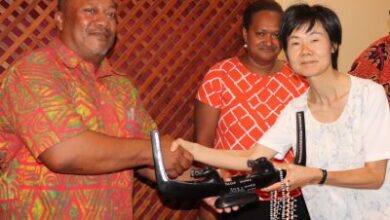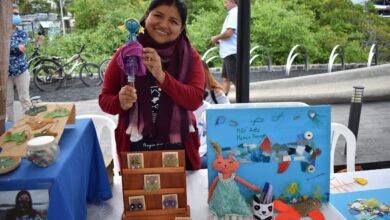Research on the Roles and Contributions of Indigenous Women in Sustainable Resource Management in Asia

Across the different case studies, common and general recommendations in relation to the roles and contributions of indigenous women in sustainable forest management can be drawn. Moreover, the research has identified case-specific recommendations for each country.
It is vital to raise awareness that indigenous peoples’ lives depend on their right to land and access to forests, and that their livelihood practices are environmentally sound and sustainable. In particular, the traditional knowledge and the essential roles of indigenous women in sustainable resource management processes, the maintenance and promotion of biodiversity as well as in the transmission of knowledge and culture need to be widely understood and recognized. Moreover, it is essential to create a broad public understanding that forests are best protected and promoted if communities are given the responsibility for their conservation and regeneration. Initiatives and measures of forest preservation and management by indigenous women should be given greater support.
Indigenous women continue to face multiple forms of discrimination and marginalization. Thus, national laws should be reviewed to identify and rectify provisions that allow the discrimination against them. Moreover, national laws and policies on land and forest resources have to be reassessed and reformulated in order to recognize the rights of indigenous peoples in accordance with international obligations. It has to be ensured that reforms on land access and land tenure are carefully designed to ensure the rights of indigenous women to access and manage their resources and land. The allocation of forest lands to indigenous communities for their collective ownership and traditional management systems should be encouraged to ensure the collective right of indigenous peoples to maintain their traditional knowledge, skills, and customary laws as well as the cultural ties to their lands.
The full, equal, and effective participation of indigenous women in the political and public spheres, community affairs, and in decision-making processes at all levels should be encouraged and strengthened. Their participation has to be ensured in the design and implementation of development models and conservation efforts. If this is done, sustainable development that respects and promotes the women’s distinct identities, cultures and needs can be achieved. Measures should be undertaken to eradicate ethnic and gender-based discrimination, and to reassess traditional patriarchal belief systems.
Among indigenous women, awareness has to be created and raised on women’s rights and their rights to natural resources. Access to information on the topics relevant to traditional resource management practices has to be facilitated and increased. In this context, the low literacy rate of indigenous women has to be taken into account.
Gender-specific capacity building is needed to enhance women’s self-confidence and skills (e.g. financial, literacy, and numeracy training). This should be comprised of the identification of specific needs, issues and priorities. It is essential to improve the education opportunities for women as the limited access to social services poses a major obstacle for them to know and make use of their rights.
It is important to improve and promote economic and livelihood opportunities for indigenous women by ensuring that their traditional knowledge and locally available natural resources can be utilized most efficiently for the sustainment of the their livelihoods. This can also include specific capacity-building activities related to the marketing of the different community products as well as short-term income generating training and programs for women, because their income mainly relies on forest resources which often have been depleted. In Nepal and India, indigenous women already produce a range of products and household items made from natural resources (e.g. Allo or Sal products), but due to their lack of marketing skills, sell them for less than their value.
Their traditional knowledge and skills allow the women to gain income to support their families that often face food insecurity. This, in turn, can contribute to strengthen their status and economic independence and to increase their voice in family decisions. Thus, the Allo cultivation practices are promising ways to uphold traditional knowledge, to build better lives for poor small-holder families, and at the same time, to promote gender equality. However, due to their lack of education and control over land and other resources, women often have less economic benefit from the natural resources than they actually could.
In order to prevent the loss of the indigenous women’s rich repertoire of traditional knowledge, it is crucial to document their knowledge, skills, practices, and technologies in a detailed and systematic way. In this context, it is also crucial to promote and strengthen the transfer of knowledge to younger generations through various channels.
When women organize themselves in groups, e.g. in unions or alliances, their voices can be strengthened and they can become the driving forces in activities related to indigenous knowledge and the natural resource conservation. Indigenous women need the space and opportunity to express their specific needs, priorities, issues and potential solutions, based on their own knowledge and experiences.
It is essential to prohibit development programs and projects that threaten indigenous peoples’ livelihoods and their rights to land, territories, and resources, especially when they cause wide-spread deforestation and forest degradation (e.g. the allocation of forests to private companies).
Click here to download full publication.



